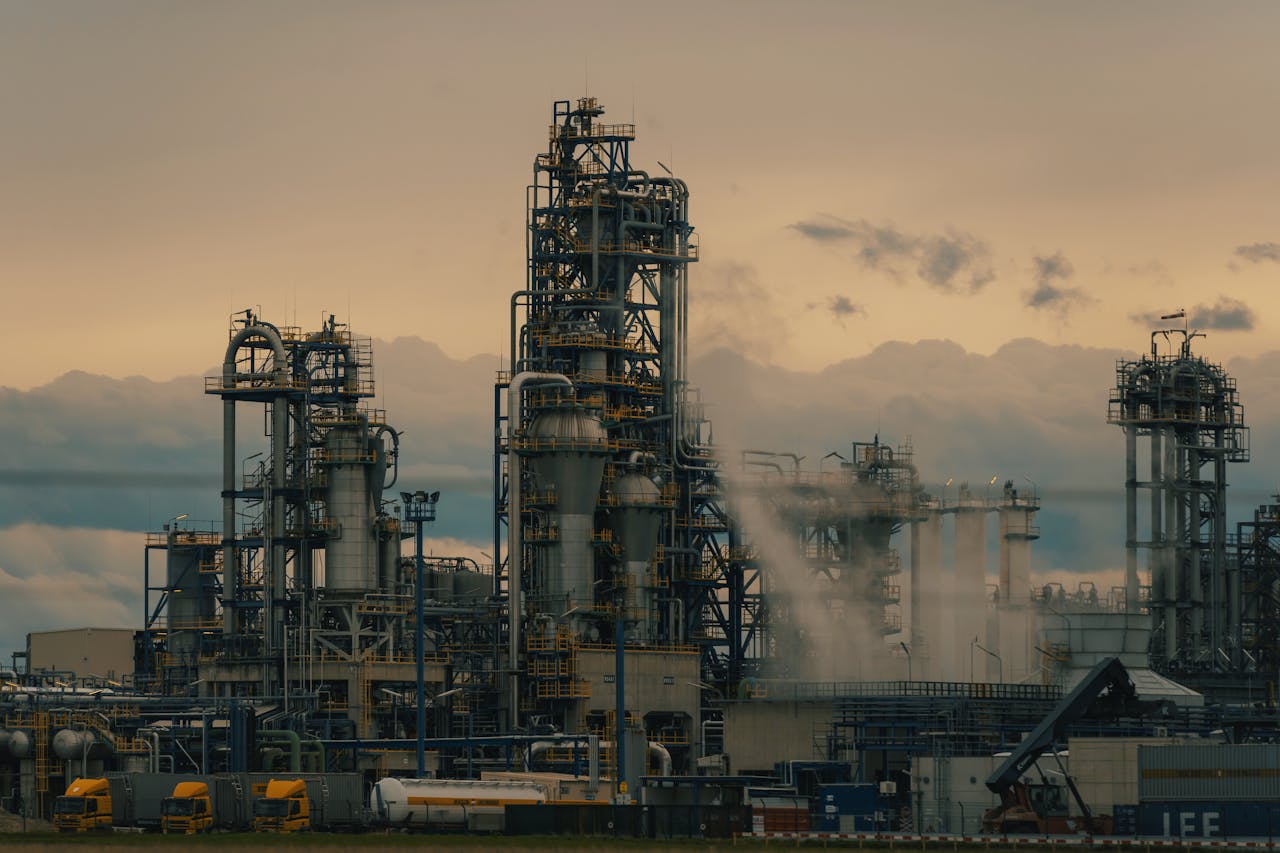A Sustainable Future: Heavy Industry’s Role in Climate Action
By Katie Brenneman
Heavy industry plays a crucial role in the global economy, encompassing sectors that produce goods that require significant resources and energy. Defined as industries that involve large-scale production processes, heavy industry includes manufacturing, construction, mining, and energy production. Notable examples include steel manufacturing, cement plants, chemical production, and heavy machinery.
These industries are often characterized by their substantial carbon footprints, contributing significantly to climate change. However, as awareness of climate change grows, many heavy industry businesses are taking steps toward climate action, recognizing their responsibility to mitigate environmental impact and promote sustainability. Doing so can modernize the industry and transform its image from the world’s preeminent polluter to a pioneer of innovation.
Consequences of Climate Change
The impacts of climate change are extensive and multifaceted, affecting both the environment and public health. Rising temperatures, extreme natural disasters, and decimated ecosystems are just a few consequences of climate change. Public health is particularly vulnerable, with climate change potentially leading to a host of health concerns. For instance, increased air pollution can exacerbate respiratory illnesses, while rising temperatures can facilitate the spread of vector-borne diseases..
It’s critical for heavy industries to reduce their emissions, as cleaner production processes can significantly enhance community well-being and protect public health. These industries can help alleviate the effects of climate change for current and future generations by prioritizing sustainability.
Why Heavy Industry Needs to Clean Up Its Act
Heavy industry is a significant contributor to climate change, with manufacturing plants being particularly notorious for their greenhouse gas emissions. Processes involved in industrial manufacturing often release high levels of carbon dioxide and other pollutants, contributing to the greenhouse effect. For instance, steel and cement production is among the most carbon-intensive activities globally, accounting for one-sixth of CO2 emissions from the world’s energy system.
According to recent studies discussing how manufacturing significantly contributes to global warming, these practices must be addressed urgently to combat the climate crisis. Heavy industry must acknowledge its role in environmental degradation and take robust action to improve its practices. These sectors can significantly reduce their contributions to climate change by implementing greener practices and technologies.
Investing in Renewable Energy Sources
A compelling way for heavy industry to mitigate its carbon footprint and become climate-positive is through investing in renewable energy sources. This transition includes utilizing solar, wind, and other sustainable energy forms to power operations. Heavy industries can significantly lower their greenhouse gas emissions by shifting away from fossil fuels, contributing to a more sustainable future.
Some climate-positive businesses actively seek to reduce their environmental impact by adopting renewable energy. Heavy industry leaders can foster innovation and resilience within their organizations by prioritizing these investments. Embracing renewable energy benefits the environment and enhances companies’ reputations and competitiveness in increasingly eco-conscious markets.
Sustainable Materials and Supply Chain Management
Another critical aspect of climate action in heavy industry involves using eco-friendly manufacturing materials and sustainable supply chain management. Companies can reduce their overall carbon footprint significantly by using materials with a lighter environmental impact. These resources may include using recycled materials, adopting biodegradable substances, or implementing local sourcing to minimize transportation emissions.
A comprehensive guide on eco-friendly manufacturing materials highlights various options available to manufacturers today. Heavy industries can play a pivotal role in enhancing environmental sustainability by prioritizing eco-friendly materials and optimizing supply chains. Streamlining their processes and reducing waste benefits the planet and can lead to significant cost savings.
Advanced Technology
Technologies like artificial intelligence (AI) and blockchain offer unprecedented opportunities for heavy industries to optimize resource management and reduce emissions. AI can analyze data to improve efficiency in production processes, allowing companies to identify areas where they can minimize waste and emissions. Moreover, AI can facilitate predictive maintenance, ensuring equipment operates optimally and reducing resource consumption.
Blockchain technology can also revolutionize transparency, allowing companies to track the environmental impact of the entire supply chain. By adopting these technologies, industry leaders can effectively tackle their carbon footprints and address the health implications of climate change. The synergy between advanced technology and sustainability can lead to a more resilient and efficient industry.
Heavy Industry Sustainability for a Sustainable World
In conclusion, heavy industry is critical in addressing climate change and promoting sustainability. Heavy industries can transform their operations to be more sustainable by acknowledging their contributions to environmental degradation, investing in renewable energy, adopting eco-friendly materials, and leveraging advanced technologies.
The shift towards sustainability is not just an ethical imperative but also a strategic advantage that can lead to increased efficiency, cost savings, and a positive public image. All industries must start proactively mitigating their environmental impact and contribute to a healthier planet. Through collective action and commitment to sustainability, heavy industries can pave the way for a more sustainable world for generations to come.
_______________________________
Katie Brenneman is a passionate writer specializing in business management, tech innovations, education, and sustainability-related content.
Follow Katie on Twitter/X: @katiebwrites93




